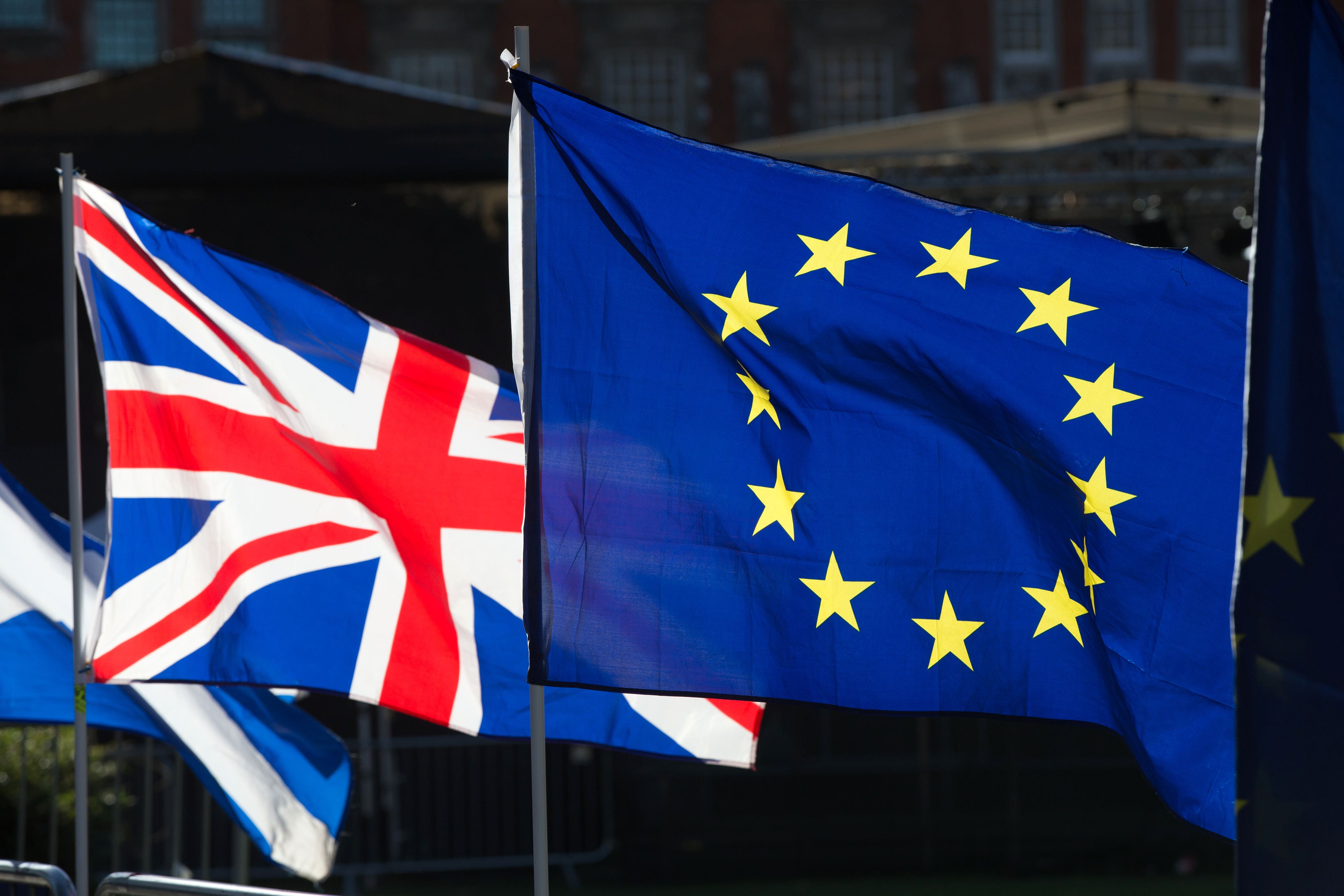Minister admits post-Brexit red tape should be eased
Environment minister’s comments come as British Chambers of Commerce calls for action

More can be done to cut UK-EU red tape on trade, an environment minister has said, amid warnings that a significant number of businesses are still struggling with the Brexit deal.
The British Chambers of Commerce (BCC) is calling on the government to do more, as a survey found that 77 per cent of UK firms trading under the deal agreed by Boris Johnson had not helped them.
Food, farming and fisheries minister Mark Spencer told Times Radio that there is “always more” that the government could do to reduce trade friction.
“Of course, there’s always more that we can do to try and ease the way for the passage of trade. We’re very keen to do that,” Mr Spencer said, when pressed on the BCC’s concerns.
He said that the UK had made progress, citing an increase in the number of seasonal worker visas available in the horticulture industry next year.
“We’re a free and open trading nation. We want to work closely with our EU colleagues, we want to try and reduce that red tape if there is any red tape on their side of the channel, so of course we want to keep those channels of trade open in both directions.”
The UK Brexit deal came after years of often fraught negotiations between London and Brussels, with the economic impact of the UK’s exit still a divisive issue.
Last month, the Office for Budget Responsibility (OBR) said Brexit had caused a “significant adverse impact” on trade volumes and business relationships between UK and EU firms.
The BBC has warned that Brexit is not helping its members to expand or boost sales. Some 56 per cent of BCC members trading with the EU said they had seen problems with new rules for exporting their goods.
Shevaun Haviland, director general of the BCC, called for an “honest dialogue” on improving the UK-EU trading relationship.
“Businesses feel they are banging their heads against a brick wall as nothing has been done to help them, almost two years after the TCA was first agreed.
“The longer the current problems go unchecked, the more EU traders go elsewhere, and the more damage is done,” she said.
The body is calling for a supplementary deal with the EU that can eliminate or reduce the complexity of food exports for small and medium-sized firms, as well as a Norway-style deal that would exempt smaller businesses from the requirement to have a fiscal representative for VAT in the EU.
Among a number of proposals, it is also calling for side deals with the EU and member states to allow UK firms to travel for longer and work in Europe.
The BCC, echoing the concerns of other business groups, has urged the Government to find an agreement to the ongoing row over post-Brexit arrangements in Northern Ireland.
We want to work closely with our EU colleagues, we want to try and reduce that red tape if there is any red tape on their side of the channel, so of course we want to keep those channels of trade open in both directions
Ms Haviland suggested that business wants politicians “to move on from the debates of the past and find ways to trade more freely”.
“This means an honest dialogue about how we can improve our trading relationship with the EU. With a recession looming, we must remove the shackles holding back our exporters so they can play their part in the UK’s economic recovery,” she said.
“If we don’t do this now then the long-term competitiveness of the UK could be seriously damaged.
“It is no coincidence that during the first 15 months of the TCA we stopped selling 42% of all the different products that we used to.
“There are clearly some structural problems built into the TCA which cannot be addressed until it is reviewed in 2026.”
Hilary Benn, a Labour MP and co-convenor of the UK Trade and Business Commission, called on the Government to prioritise easing the flow of trade between British and EU companies.
“Since Brexit, British businesses have been saddled with new red tape, costs and bureaucratic customs checks,” he said.
“While deep in the grips of a cost-of-living crisis, it is imperative that the Government now prioritises making trade with Europe easier by removing the barriers which their unworkable deal has created.”






Join our commenting forum
Join thought-provoking conversations, follow other Independent readers and see their replies
Comments